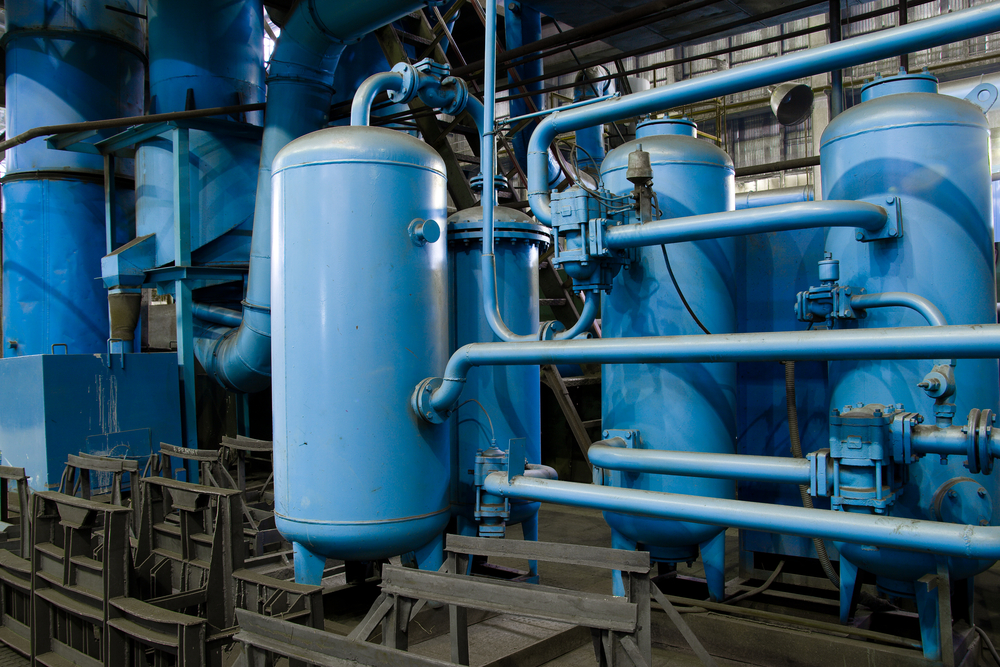Simple Measures to Raise Low Water Pressure in Your Home
Simple Measures to Raise Low Water Pressure in Your Home
Blog Article
Right here on the next paragraphs you will find some high-quality additional info involving 9 Reasons for Low Water Pressure in Your House.

Low water pressure in your house can be a frustrating trouble, impacting every little thing from bathing to washing recipes. If you're experiencing weak water flow, there are a number of possible causes and remedies to explore. In this guide, we'll talk about usual factors for low tide stress and sensible steps to address the issue successfully.
Intro to Low Water Pressure
Low tide stress takes place when the flow of water from your taps, showers, and other fixtures is weaker than normal. This can make daily jobs much more tough and less effective. Understanding the root causes of low tide stress is crucial to locating the ideal service.
Common Sources Of Low Tide Pressure
Faulty Pressure Regulators
Stress regulatory authorities are responsible for maintaining consistent water pressure in your house. If they malfunction, it can cause low tide pressure or unequal flow throughout your home.
Municipal Supply Of Water Issues
In some cases, the trouble lies outside your home. Municipal water concerns, such as main line leaks or maintenance job, can temporarily reduce water pressure in your location.
Pipe Obstructions
Gradually, pipelines can come to be clogged with natural resource, sediment, or debris, limiting the flow of water. This is an usual issue in older homes with galvanized steel pipes.
Deterioration
Corrosion within pipelines can cause leakages and minimized water stress. Corrosion accumulation can constrict water circulation, especially in maturing plumbing systems.
Exactly How to Identify Low Water Pressure
Examining Pipes
Inspect noticeable pipes for indicators of leaks, deterioration, or obstructions. Take note of any kind of unusual noises, such as knocking or rattling pipelines, which might show issues within the plumbing system.
Consulting with a Plumber
If you're unable to pinpoint the source of low water stress, think about working with a professional plumber to perform a detailed evaluation. They can recognize underlying issues and recommend suitable remedies.
Examining Taps and Fixtures
Beginning by evaluating the water stress at different faucets and fixtures throughout your home. If the issue is isolated to details locations, it might indicate localized troubles.
DIY Solutions to Fix Low Tide Stress
Flushing Water Heater
Debris build-up in the hot water heater can limit circulation and lower efficiency. Purging the container occasionally helps remove sediment and maintain optimal efficiency.
Examining Stress Regulator
Ensure that the pressure regulator is operating correctly. Readjusting or replacing the regulatory authority can help recover appropriate water pressure throughout your home.
Cleaning Aerators and Showerheads
Natural resources can build up in aerators and showerheads, lowering water flow. Eliminate and clean up these components routinely to enhance water stress.
Clearing Up Clogs in Pipes
For minor blockages, try utilizing a plumbing snake or chemical drainpipe cleaner to clear blockages in pipes. Beware when making use of chemicals and adhere to security standards.
When to Call a Specialist Plumber
If DIY initiatives fall short to resolve the issue or if you suspect significant plumbing troubles, it's finest to look for assistance from a qualified plumber. They have the experience and devices to deal with intricate concerns securely and successfully.
Safety Nets to Maintain Water Pressure
Setting Up a Pressure Booster
Consider mounting a pressure booster pump to boost water pressure in locations with constantly reduced flow. This can be particularly beneficial for multi-story homes or homes with high-demand components.
Surveillance Water Usage
Be mindful of water usage practices and prevent ill-using the plumbing system. Straightforward adjustments, such as incredible showers and laundry tons, can assist keep adequate water pressure.
Regular Maintenance
Arrange routine maintenance for your plumbing system to prevent problems such as rust, leaks, and obstructions. Resolving minor troubles early can assist avoid even more substantial repairs later on.
Verdict
Taking care of low tide stress can be irritating, however recognizing the underlying causes and carrying out proper options can recover optimal circulation throughout your home. Whether it's cleansing aerators, inspecting pipelines, or seeking advice from a plumber, taking proactive actions can ensure a stable supply of water for your day-to-day demands.
HOW TO FIX LOW WATER PRESSURE IN YOUR HOUSE
When your plumbing system functions properly, you likely never think about the water pressure coming from your faucets, shower heads, or other water fixtures. If you experience low water pressure in your house, though, it can quickly cause problems for cooking, cleaning, bathing, and laundry. Learning how to fix low water pressure in your house can help you avoid frustrating situations and worsening plumbing issues.
When investigating why your home has low water pressure, call the plumbing professionals at Hutchinson to inspect your system, identify the problem, and perform necessary repairs. Our highly-trained plumbing system experts utilize the best tools and techniques available to resolve issues with your home’s plumbing system. Call today to schedule a service with our experts and resolve the low water pressure in your home.
Common Causes of Low Water Pressure
While learning about how to fix low water pressure in your house, it’s essential to understand the various causes of this issue. From plumbing system failures to issues with your water fixtures, there are many reasons for low water pressure in a home. The most common causes of low water pressure include:
Pipe corrosion: If you live in an old house, your pipes could be much older than you realize. Over time, most pipes corrode, especially those made from galvanized steel. Corrosion creates small holes in your pipes that allow water to leak as it travels to your fixtures, leading to low water pressure. Hard water: Hard water forms when water retains a certain concentration of mineral and sediment buildup. Hard water can exacerbate corrosion and reduce water pressure. Hard water remains one of the main culprits of clogged pipes. Clogged pipes: When a pipe blockage clogs your system, it restricts water flow. That’s why clogged pipes are a leading cause of low water pressure. Faulty fixtures: Components within individual water fixtures can experience isolated clogging and rusting that cause low water pressure. If you notice only low shower pressure or limited faucet flow, inspect your system for faulty fixtures displaying rusting, clogging, and other damage. Water line leaks: Your water supply usually comes from a community source connected to your home through a water line. Any leaking in this water line will reduce water pressure before it enters your home. If you share a water line with neighbors, they might also notice low water pressure due to this problem. Broken pressure regulator: The pressure regulator ensures the water flowing throughout your home remains at a psi of about 50. Damage or breakdown of this crucial component will reduce water pressure throughout your property. Closed valve: The water valve supplying your home must be fully open to enable proper water pressure. A partially closed valve will yield low water pressure and cause issues. 5 Ways to Fix Low Water Pressure
Check for Leaks
Depending on their severity, leaks are usually easy to identify as the cause of your low water pressure. Whether your basement floods overnight or you notice mold growth on surfaces near your pipes, leaks usually present noticeable symptoms. In most cases, you’ll need to call professionals to replace sections of damaged piping or seal water line leaks.
Clear Clogged Pipes and Drains
Clogs can occur in any part of your system at any time. In most cases, it’s difficult to resolve clogged pipes and drains without professional equipment and experience.
Hutchinson experts can perform a comprehensive plumbing system inspection to identify the clog’s source and remove obstructions from your pipes. With the help of advanced equipment, we can restore your home’s normal water flow and pressure.
Replace the Pressure Regulator
After identifying a faulty pressure regulator as the cause of your low water pressure, there’s nothing to do but replace the mechanism. Homeowners should never conduct their own replacement.
Attempting to replace a crucial component like your pressure regulator that attaches to your overall plumbing framework could cause unnecessary damage and worsen the situation. Instead, rely on professionals to replace your pressure regulator properly.
Repair or Replace Broken Faucets and Fixtures
If you notice water pressure issues in an individual faucet or fixture, you can solve the problem quickly. Depending on the type and location of the fixture, you can likely replace it yourself.
For homes with custom fixtures, you might need to special order new parts. In these cases, opting for professional replacements helps you avoid any mishaps that could leave your water feature dysfunctional for longer.
Install a Pressure Booster
Water pressure problems impacting your neighborhood or community at large might require more overarching solutions. If your neighbors experience low water pressure as well, you might need to integrate a pressure booster into your water supply line.
Pressure boosters upgrade the water pressure starting at the source. These mechanisms can provide water pressure benefits to any homes on the same supply line. Call Hutchinson today to install a pressure booster on your water supply line.
Call Hutchinson to Fix All Your Plumbing Issues
Low water pressure is just one of many plumbing problems that reduce home comfort and cause system issues. The top-rated professionals at Hutchinson offer comprehensive plumbing services, including system inspections, maintenance, and repairs.
https://www.hutchbiz.com/blog/2024/01/15/how-to-fix-low-water-pressure-in-house/

I was made aware of that write-up about 10 Reasons for Low Water Pressure in Your House from a friend on our other site. Sharing is good. One never knows, you may very well be doing someone a favor. Thank you for going through it.
Here Report this page